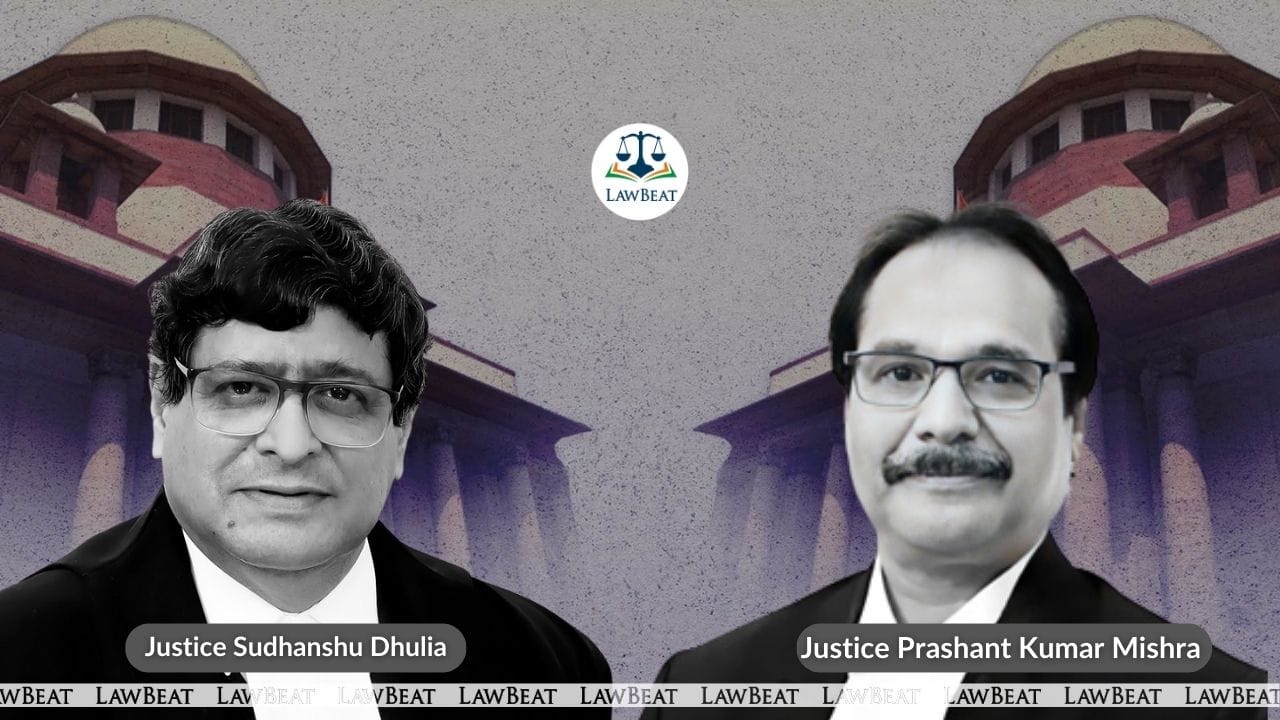'Common Intention Can Arise Instantly, Even Without Prior Planning,' Says SC

Court clarified that the presence of the accused at the scene of the crime as an accomplice of the co-accused establishes common intention under Section 34 IPC
The Supreme Court has held that merely because the injuries caused by an accused were less severe than those inflicted by another co-accused, and the injuries were not classified as grievous, a conviction under Section 326 of the Indian Penal Code (IPC) cannot be reduced to Section 324 IPC.
A bench comprising Justices Sudhanshu Dhulia and Prashant Kumar Mishra clarified that the presence of the accused at the scene of the crime as an accomplice of the co-accused establishes common intention under Section 34 IPC, regardless of whether the injuries inflicted were on less vital parts of the body.
Court also said that common intention and the pre-meeting of minds can take place at the spur of the moment itself during the course of the incident.
The observations were made in an appeal filed by the Karnataka government challenging an August 17, 2012, High Court order that had modified the convictions and sentences of the accused.
The case stemmed from an incident on September 18, 1999, where Bettegowda, along with his two sons, attacked his brother and nephews with knives and choppers over a land sale dispute. An FIR was filed under Sections 341, 324, and 307 read with Section 34 of the IPC. Following the investigation, a chargesheet was submitted under the same provisions.
The Sessions Court in Mysore concluded that while there was no intention to kill, the use of deadly weapons and the nature of injuries warranted convictions under Sections 326 and 341 read with Section 34 IPC. The three accused were sentenced to six years of rigorous imprisonment (RI) each, along with fines. However, they were acquitted of charges under Section 307 IPC.
The High Court partially allowed the appeal of the accused. It acquitted Bettegowda (Accused No. 1), citing insufficient evidence of his active role, though he was present at the scene. For Accused No. 2 (K.B. Vijayakumar), the court reduced the conviction from Section 326 to Section 324 IPC, reasoning that the injuries he caused were less severe and inflicted only on the hand. His sentence was reduced to the 16 days already undergone, with the fine increased from Rs 1,000 to Rs 75,000.
As for Accused No. 3 (K.B. Jayakumar @ Suresh), the High Court upheld the conviction under Section 326 IPC but reduced his sentence from six years to two years RI.
The Supreme Court questioned the High Court's rationale in altering the conviction of Accused No. 2. The bench noted that both Accused Nos. 2 and 3 had assaulted the victims with deadly weapons—Vijayakumar wielding a chopper and Jayakumar a knife.
The court rejected the defence that when both the accused had arrived at the spot, they had no intention to inflict the nature of injuries on the injured persons.
"Even if it is assumed it is true, it cannot be denied that common intention and the pre-meeting of minds can take place at the spur of the moment itself during the course of the incident," the bench said.
"The crucial question before this court, however, is whether the Accused No 2 whose conviction was converted from Section 326 to Section 324 of the IPC and he has been sentenced to only 16 days of imprisonment, was proper, inasmuch it has been done after the High Court came to the conclusion that Section 34 of the IPC even for the Accused no 2 is not made out. This finding we are unable to accept," the bench said.
The court noted both accused Nos 2 & 3 had together assaulted the (father and son). They were armed with deadly weapon whereas the accused no. 3 was armed with a knife and accused no 2 had in his hand a chopper.
"Although, the High Court came to the conclusion that Section 34 is not made out, no valid reason has been assigned as to how it is so. Considering these facts stated above, we are of the opinion that Section 34 of the IPC is made out in this case for accused no 2 and accused no. 3. Changing the finding from Section 326 to Section 324 of the IPC and the sentence of the accused no 2 to the period already undergone is therefore wrong," the bench said.
The court allowed the State’s appeal to the extent that it convicted Accused no 2 under Section 326 read with 34 of the IPC and sentenced him for the same period as was given by the High Court to accused no 3, i.e. two years RI along with the fine of Rs 75,000.
The court ordered him to surrender within a period of four weeks and undergo the period of remaining sentence in jail.
Case Title: The State of Karnataka Vs Bettegowda & Ors
